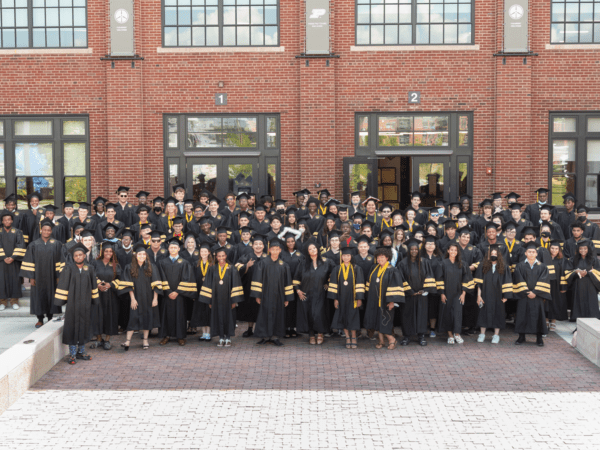Muito poucos estudantes negros e latinos de Indianápolis e estudantes de famílias de baixos rendimentos matriculam-se e concluem o ensino superior, o que os deixa menos preparados para ter sucesso na nossa economia do século XXI. Universidade de Purdue, em parceria com seu Faculdade de Engenharia, criada Escola Secundária Politécnica de Purdue (PPHS) para preparar melhor estudantes negros e latinos e estudantes de famílias de baixa renda para terem sucesso em carreiras em Ciências, Tecnologia, Engenharia e Matemática (STEM). O modelo inovador do ensino médio combina aprendizagem personalizada com currículo baseado em projetos – incluindo aprendizagem experiencial focada na indústria – que ajudam a dar vida às carreiras dos alunos. O intenso programa foi projetado para ser um trampolim para a faculdade ou um caminho direto para uma carreira de alta tecnologia para estudantes de todas as origens.
Em 2017, a Fundação Richard M. Fairbanks concedeu $1.250.000 para apoiar o lançamento do PPHS e ajudar a desenvolver a capacidade de back-office necessária para dimensionar o modelo. O PPHS agora se expandiu para três campi. Os primeiros resultados das escolas foram promissores, e a primeira turma de formandos de 113 alunos incluiu 48 alunos que foram aceitos na Universidade Purdue, metade dos quais identificados como negros ou latinos.



